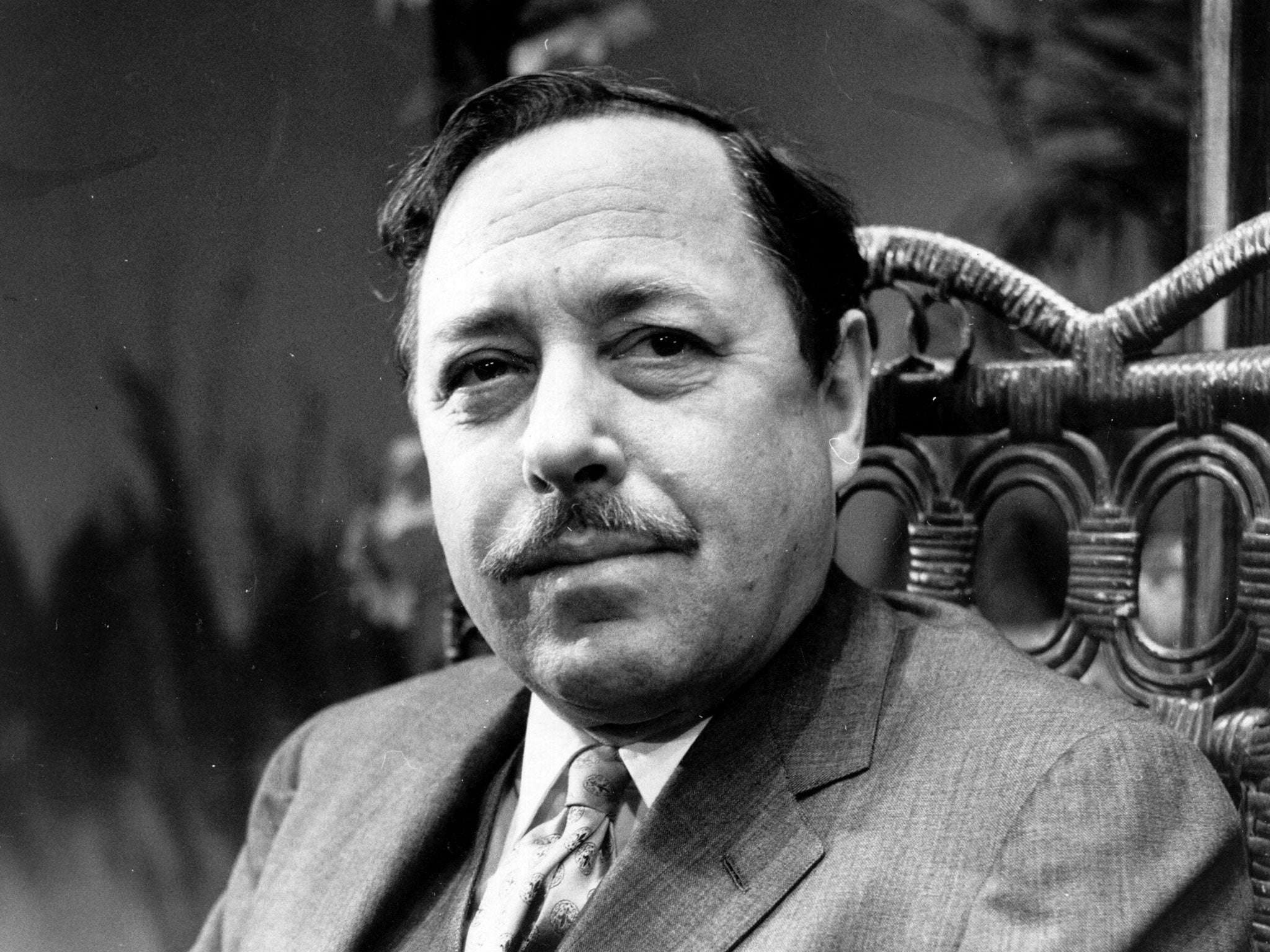Tennessee Williams: Mad Pilgrimage of the Flesh by John Lahr, book review
This new biography of Tennessee Willliams brings his private life into horrifying focus

Support truly
independent journalism
Our mission is to deliver unbiased, fact-based reporting that holds power to account and exposes the truth.
Whether $5 or $50, every contribution counts.
Support us to deliver journalism without an agenda.

Louise Thomas
Editor
Mad Pilgrimage of the Flesh, the revealing subtitle to John Lahr's huge, often fascinating, official biography of Tennessee Williams, sounds as if it might be a reference to some risky American film starring the likes of Lana Turner.
You might even think it refers to Williams's early surrender to a life of assorted drugs, alcohol and paranoia, not to mention young hustlers prone to tantrums and violence. The worst descent into near madness, though, occurred at the Williams' family home, when he was adolescent, where his repressed mother succeeded in organising a life-ruining lobotomy for a daughter whose so-called madness may have been induced by the advances of her incestuous father. The Glass Menagerie, Tennessee's first play, was drawn from life, with the more shocking details blotted out.
Lahr conveys the repressive atmosphere of this unnatural family life as vividly as he anatomises the playwright's professional decline and fall in the early 1960s, after the collapse of his long-term relationship with Frank Merlo. The "Flesh" quotation, though, turns out to be an anxious quotation from Tennessee's personal notebooks. "Am I all animal , all wilful, blind, stupid beast?" Williams, prone to primness at 27, asks himself, having for the late, first time tried his hand at masturbating just months earlier, shortly before he also surrendered to his initial experience of gay sex. "Is there another part that is not an accomplice in this mad pilgrimage of the flesh," he anxiously wondered.
By choosing this lurid subtitle, with its sense of Williams involved in a long civil war between the flesh and the rigid Puritan conscience instilled into him by his mother, Miss Edwina, Lahr usefully signals one of the main lines of nagging conflict in the playwright's life. In his rather vainglorious preface, he dismisses many of the 40 books already written about Williams as mere "gossip". He then offers a diagnosis of what his predecessors have missed. "The plays are his emotional autobiography, snapshots of his heart's mutation."
To say this is hardly to offer a psychologically revealing comment on the genesis of Tennessee's compulsive need to write. For ever, since the high days of homophobia, Williams has been written up – though not off – as a playwright whose famous heroines are colourfully cross-dressed in elements of the playwright's own personality. Such Williams' heroines as Blanche du Bois in A Streetcar Named Desire, Alma in Summer and Smoke, The Princess in Sweet Bird of Youth and Lady in Orpheus Descending are variously afflicted by sexual repression, hysteria, hypochondria, neuroses, terror of ageing and lust for a risky young man – all characteristics which they share with their author.
Lahr quotes Elia Kazan, who directed Streetcar, observing "Blanche (heroine of Streetcar) is attracted to murderer Stanley… Blanche wants the very thing that's going to crush her… That's the way Williams was. He was attracted to trash." This has elements of truth but Williams's character and dramas were more complex than this categorisation of him as a masochist on the hunt for rough trade. To his credit Lahr recognises the limitation of such a reading.
He is, by contrast, at his considerable best in his meticulous charting of Williams's close and daunting encounters in the higher echelons of the theatrical and film business, up against the clash and clamour of men and women intent on making money out of him. The account of the playwright's angry, agonised relationship with Merlo which ends in Williams's cruel desertion and his lover's death becomes in Lahr's telling as dramatic as anything Williams wrote.
Mad Pilgrimage of the Flesh does, however, concentrate too much upon Lahr's over elaborated assessment of Williams the great, flawed dramatist. It is in bringing Williams's personal life into close, often horrifying focus that the biography casts its spell.
Subscribe to Independent Premium to bookmark this article
Want to bookmark your favourite articles and stories to read or reference later? Start your Independent Premium subscription today.
Join our commenting forum
Join thought-provoking conversations, follow other Independent readers and see their replies
Comments